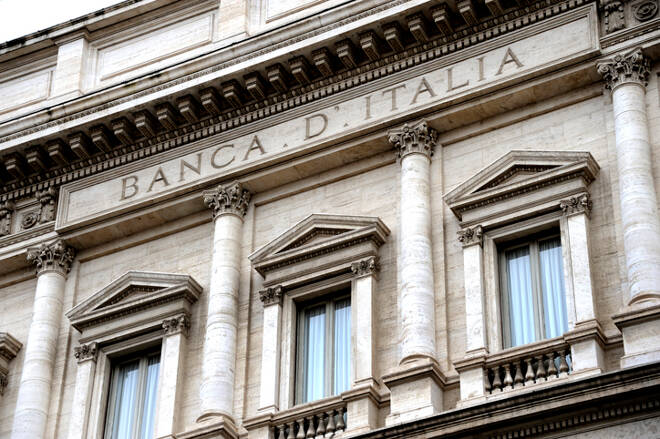Advertisement
Advertisement
Is the Italian Government Thinking to Touch Gold Reserves?
Published: Feb 20, 2019, 09:35 GMT+00:00
The populist Italian government is looking at a controversial source of income to help cover the costs of its spending spree: the gold treasure held by the Bank of Italy (Bankitalia).
The coalition formed by Lega and 5 Stelle is swiftly pushing through hugely costly reforms such a ‘citizenship income’ and a new pension scheme which will see many retiring much earlier than previously allowed.
And with Italy already one of the most heavily indebted countries in the world the key questions is: where are the funds coming from?
While a tax hike could seem the obvious answer, this is likely to prove an unpopular option in a country that already boasts one of the most punishing tax regimes.
So the populist government seems to be mulling an assault on the conspicuous Bankitalia booty. Italy has the 3rd biggest gold reserves in the world, after only the US and Germany.
Italian newspaper La Stampa reported that the government would be considering the option to sell part of its $100 billion dollars worth of gold, which is mostly stored in ingots and coins. These reserves, which amount to 2,451.8 metric tonnes of gold, have been untouched for the last 20 years.
If the government does decide to sell its bullion though it is likely to find multiple barriers.
Rules outlined in the Central Bank Gold Agreement would only allow any potential sales from the last quarter this year, just in time for the next Italian government budget, due in October 2019.
But the government would need to design a legal framework to do so, which requires them to establish who is the legal owner of that gold: is it Bankitalia or the Italian people? This is a grey area within the Italian legal system, which could prove to be the first hiccup.
The government would also need some support from the Bankitalia management and possibly from the ECB, which could, under the ECB statute and various European treaties, oppose such sale.
On top of that, a sale would almost certainly spook financial markets.
Traders would likely interpret this as a distressed signal, clearly marking the controversial direction that this government intends to follow. We would also likely to see some negative reaction in the bond market, with the Italian 10-year-BTP likely to come under pressure.
Italy’s gold is a strong safe haven for the country in Bankitalia’s hand, preventing the country (and marginally the EU) from speculative attacks.
But its sale would be seen by many as an illicit political interference with the independence of the central bank, which, as cited by former Bankitalia governor Salvatore Rossi in 2013, should have the ‘ability to (act) as the ultimate bearer of domestic financial stability.’
By Carlo Alberto De Casa, Chief analyst at ActivTrades
About the Author
Carlo Alberto De Casacontributor
Carlo Alberto De Casa is analyst at Kinesis and technical analyst for Italian newspaper ‘La Stampa’. Carlo Alberto provides regular commentary for UK outlets including the BBC, Telegraph, the Independent Bloomberg & Reuters. He is also a weekly commentator for CNBC Italy and a columnist for La Stampa. He worked for Bloomberg as their Equity Research Fundamental Analyst before joining brokerage ActivTrades in 2011 to specialize in currency markets and commodities.
Advertisement
